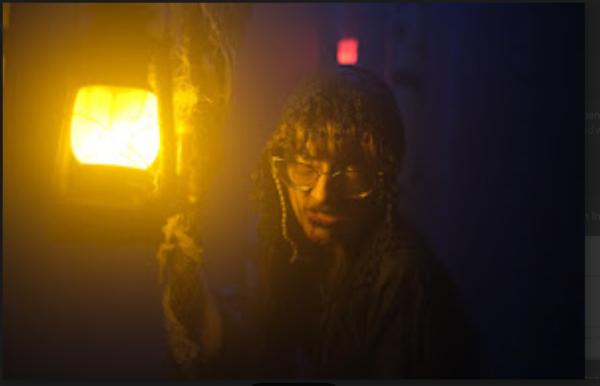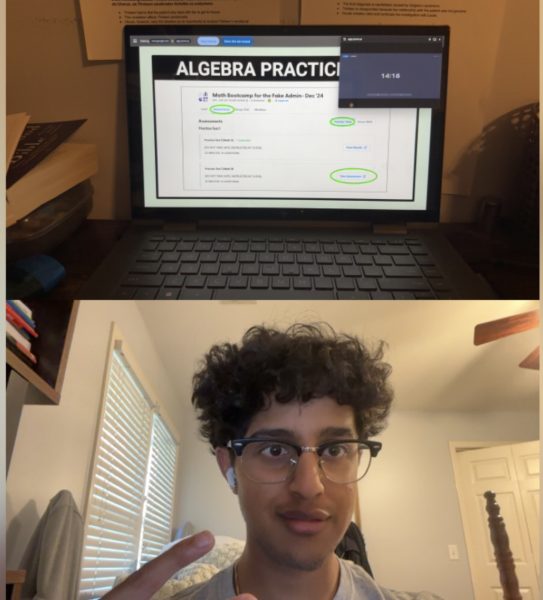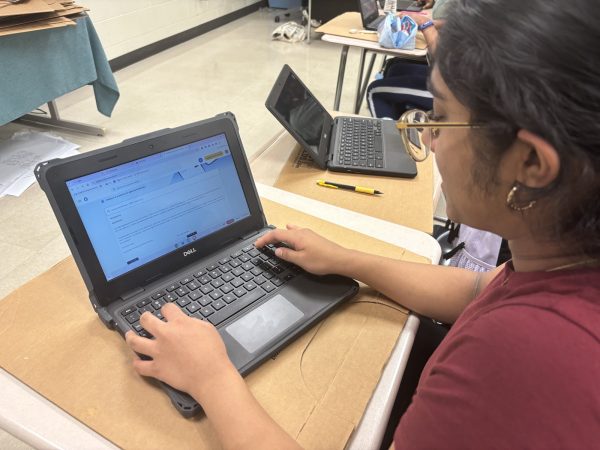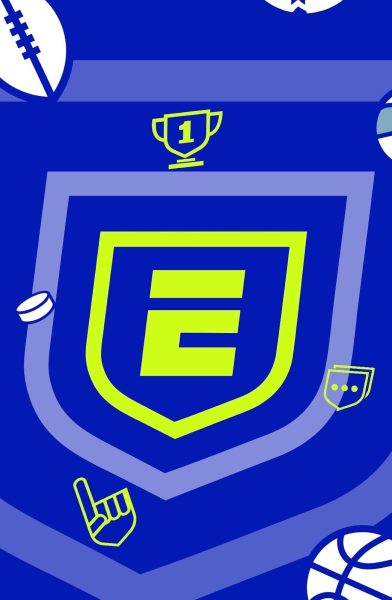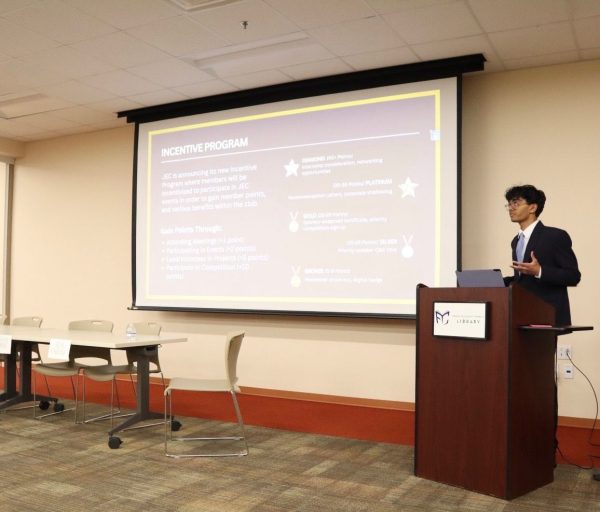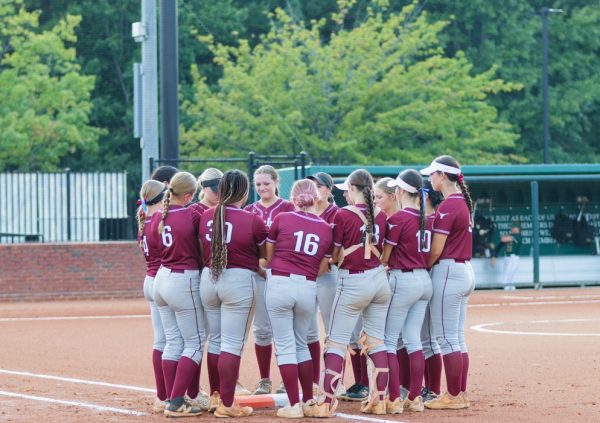Explicitness Is the Name, Book Banning is the Game – The Forsyth County School’s Book Ban
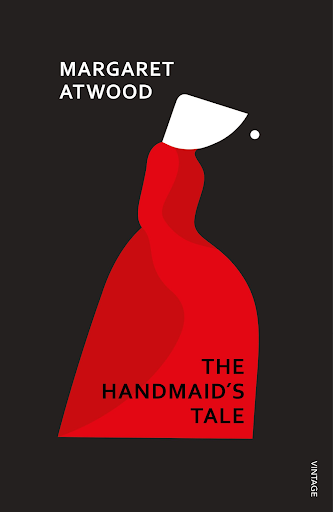
The cover of “The Handmaid’s Tale”, by Margaret Atwood. “The Handmaid’s Tale” is one of the novels restricted to only high schools in Forsyth County. (Margaret Atwood)
On January 28th, 2022, Forsyth County Schools decided to review 15 books in school libraries and by the end of their deliberation, 9 were removed (one prior to review), 4 were restricted to high schools and two were returned to shelves.
“This decision came after a parent notified Superintendent Dr. Jeff Bearden and the Forsyth County Board of Education of concerns they had with sexually explicit material they found in books offered at school media centers in the district,” Forsyth County News stated.
Forsyth county is not the only place to experience this wave of literary review. Sadly, this proposition is dangerously growing all too common across the United States with most notably, the banning of the graphic novel “Maus” in Tennessee schools.
“Maus” depicts a personal account on surviving the Holocaust and explains the traumatic event through the characters of mice and and cats.
Like Forsyth County schools, the McMinn County School Board in Tennessee had a problem with explicitness, explaining that the book was too graphic and the language was foul.
“Maus” carefully and respectfully speaks on the topics of the violence victims of the Holocaust endured. The Holocaust is a part of history and the author, Art Spiegelman, wrote this to educate others on horrendous crimes.
Is book banning justified? Is book banning responsible? Many are questioning, is it okay to ban books?
This interdiction of books is extremely alarming and every student can testify how problematic banning books can be.
Most Longhorns have read the book “Fahrenheit 451” during their freshman year. One of the central themes of the dystopian novel is restriction of information as the firemen burn books. While of course the books being banned are not burned, there can be similarities drawn about censoring information by an overwhelming controlling force
One of the many concerns that arise are the similarities between all these works of literature. We’ve noticed that many of these books feature protagonists and characters that are part of the LGBTQ+ community and many have speculated whether or not this played a part in their removal from shelves. While causation does not always mean correlation, it’s difficult and disappointing to see how representation for LGBTQ+ people is being shut out from schools.
In addition, most of the sexual content excerpts being pointed out by concerned parents are mostly taken out of context. Authors don’t insert sexual scenes into their works for no reason. For the vast majority of the time, they are being used as metaphors or symbolism for other topics.
Another problem arises when people don’t realize that these banned books are aimed at a high school audience and with the exception of “L8r G8r,” all of the books being removed are all part of Forsyth County’s high school collections.
Books aimed at high school students can’t be read by high school students. How nonsensical is that? Most high school students are aware of the topics being written about in these books and we have learned these topics in school, so why hide them?
Because of this shocking suppression of literature, it was imperative for me to hear the perspective of people directly affected.
I was able to interview one of the English Department chairs, Mr. Woody Van Treek.
In our meaningful conversation, he revealed a lot of his thoughts when he was notified about the book ban.
“My first thought was how will this affect me, how will this affect my school, how will it affect teachers?” Van Treek shared.
As department chair he had to inform his colleagues of the groundbreaking ban.
“I had to share the news that some books had to be removed from shelves if they were on there…it’s an awkward conversation,” Van Treek admitted.
Across the board, the teachers had mixed reactions on the decision.
Van Treek understood the intent of the book ban as, “there are certain books that push the boundaries of what is appropriate.”
However, he did not support this “solution”.
“I don’t really condone book banning…I understand there is a level for everything,” Van Treek stated. “You have to take into account a student’s maturity. I don’t like it when books are removed from shelves…but at the same time, I understand that sometimes there might be some themes that may be too hard for some students.”
As the book ban is across all grade levels, Van Treek made clear that he understood why some books were banned for certain age groups. For middle school and high school, he focused on the topic of maturity, on whether or not a book should be allowed in schools.
“It all depends on the maturity of the reader. When you remove things, then they never really have an option to explore them at all,” Van Treek said.
As the interview progressed we discussed more books and the consequences of removing books.
“My biggest fear is…will it start a chain of events, where if you ban one book, every book will be challenged because you find something questionable with just about every book?” Van Treek expressed. “If we give that power to parents and the community to dictate what we teach, then the teachers lose all sorts of credibility and power.”
According to Van Treek, before a book becomes a book for a unit in class, it goes through a lengthy process of review. Within this process, various people confirm that the themes are appropriate for the particular grade level and teach important themes. He hoped that the county would respect the board’s decisions so more of his students could learn something that he viewed as valuable. He also made clear that he is always open to talking to parents and explaining to them why it is important for his students to read a certain book.
At the end of the interview he said something very memorable. “You need to have trust in your child as a parent that they are learning in school and trust that the teachers are trying to get them from point A to point B,” Van Treek stated.
To hear another perspective, I interviewed Lambert Junior, Nate Sonmez.
In our lengthy discussion about serious themes in books and the effects of the Forsyth County book ban, Nate offered his own intellect and some intriguing ideas.
Nate, like Van Treek, discerned that it was at the best interest for younger students (K-8), to be shielded from sexually explicit topics. However, when it came to high school students, he had a different approach.
He explained that being exposed to these mature topics helps adolescents.
“You have a better understanding when you are presented with that[explicit topics] in a real life situation,” Nate noted. “I personally don’t think anything should be banned from the school…I think school is a place where you are supposed to be learning and figuring things out about the world and in order to do that you shouldn’t have material restricted from you.”
When our conversation shifted to the topic of concerned parents he understood their point of view but had his own thoughts on the matter.
“Keeping it [sexually explicit material] from their child could cause problems later on when their child is older…they might feel uncomfortable with mature topics,” Nate stated.
Instead of banning books, Nate suggested to me that if there must be some regulation, books that are severely explicit should have a permission slip.
I loved this clever idea. To add on to this solution, I think that books with certain serious topics should have a warning sticky note on it. This could act as a precaution for students so they know the themes they will encounter.
After conducting these interviews and thoroughly researching book bans, I am firmly against this obstruction of media. High schoolers are taught sexual education that does not go very in-depth. Students are bound to wonder more about what they were taught at such a surface level. These books educate students on different emotions, realistic, beautiful or horrific sexual situations that a lot of students are not taught about.
Students could find comfort, relation or great knowledge from these books. These banned books have topics containing rape, sex, mental health, drug use, sexuality, oppression and profanity; all subjects which high schoolers should be knowledgeable about. With maturity, students can take away the themes of the book and learn many meaningful messages the author is trying to portray. Taking away this easily accessible information is not taking away a freedom, it’s stealing a necessity. Being knowledgeable and exposed to this material through literature has the ability to enlighten someone on the severity of topics and how to deal or not to deal with certain situations.
Even with my opinion I can understand the other argument. Students could be influenced by book characters. They might want to live a dangerous life like the main character of one of these books. They might romanticize serious, grave issues. Students might delve into a world of darkness with these books that discuss such mature topics or be negatively impacted. This is possible and definitely a real concern.
Some people worry that students may overestimate their maturity and reap the detriments of these topics. That is why I encourage families to converse with their children about serious topics. The permission slips and trigger warnings placed in books can also help some adolescents.
Parents have legal rights over their children and have the authority to monitor and limit what their child reads but I think the county’s response to play parent for every student in Forsyth is unnecessarily grandiose. It is terribly inequitable for all students to be subject to the opinions of a group of parents.
Longhorns, I encourage you to go out and read. The books you want to read might be banned in schools but don’t let these limitations guard you if you are mature enough to handle these topics. Before you read these books, have a conversation with a trusted adult to evaluate whether or not you are ready to be exposed to such raw topics.
Your donation will help support The Lambert Post, Lambert High Schools student-run newspaper! Your contribution will allow us to purchase equipment and cover website hosting costs.



